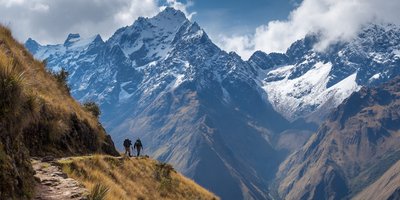
Inca History and Culture at Machu Picchu 2025: Complete Historical Guide
Comprehensive guide to Inca civilization, Machu Picchu's historical significance, architectural marvels, cultural practices, and archaeological discoveries.
Found 6 results related to this question
Our monitoring service tracks ticket cancellations and new releases 24/7. Get notified instantly when tickets for your preferred dates become available.
Oral tradition played a vital role in Inca society, serving as the primary means of preserving and transmitting knowledge across generations. Unlike many civilizations that developed written languages, the Incas relied heavily on stories, songs, and spoken word to share their history, cultural values, and religious beliefs. This practice was particularly significant in the remote regions of the Andes, including areas near Machu Picchu, where the rugged terrain made communication challenging.
Travelers visiting Machu Picchu can appreciate the importance of oral tradition by engaging with local guides who often share tales of the Inca civilization, including myths and legends that have been passed down through generations. Many of these stories highlight the significance of nature, the gods, and the deep connection the Incas had with their environment.
In addition to storytelling, the Incas used quipu, a system of knotted strings, to convey information, complementing their oral traditions. While quipu served practical purposes, such as record-keeping, oral storytelling enriched the cultural fabric of Inca life.
When visiting sites like Cusco or the Sacred Valley, tourists can learn about the oral traditions of the Incas by participating in local festivals where traditional music and dance are performed. These events often feature narratives that reflect historical events and the Inca worldview.
To gain a deeper understanding of these traditions, consider hiring a knowledgeable guide who emphasizes the significance of oral history during your explorations. Engaging with local communities can also provide unique insights into how these traditions continue to shape contemporary Peruvian culture.
Incorporating visits to local markets or artisan workshops can further enrich your experience, as many artisans share stories about their crafts rooted in their ancestral heritage. As you explore the breathtaking landscapes of Peru, remember that every stone and vista holds a story waiting to be told.
In summary, oral tradition is not just a relic of the past but continues to live on in the hearts and minds of the Peruvian people today. By immersing yourself in these cultural experiences, you'll leave with a greater appreciation of the Inca legacy.

Comprehensive guide to Inca civilization, Machu Picchu's historical significance, architectural marvels, cultural practices, and archaeological discoveries.

Experience the thrilling Inca Jungle Trek with biking, hiking, rafting and zip-lining to Machu Picchu. Complete guide to routes, adventure activities, logistics and safety tips.

An in-depth guide to hiking the Inca Trail, including its itinerary, highlights, difficulty and practical planning tips.

Detailed comparison of Inca Trail vs Salkantay Trek to Machu Picchu. Compare costs, difficulty, permits, and experiences to choose the best trek for you.

Comprehensive Peru food guide covering traditional dishes, street food, fine dining, regional specialties, and culinary experiences. Complete culinary journey through Peru.

Complete guide to Peru's most spectacular festivals and cultural celebrations. Experience Inti Raymi sun festival, Qoyllur Rit'i pilgrimage, and authentic Andean traditions with dates, locations, and cultural significance.
Set up instant alerts for ticket availability and never miss your chance to visit Machu Picchu.
Get Alerts